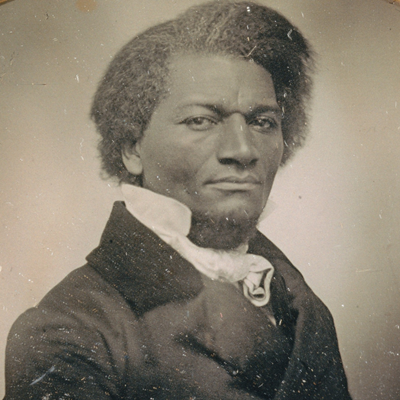
Even when we’re not aware of it, we’re using many of the same rhetorical techniques Aristotle, Cicero, Abraham Lincoln, Frederick Douglass, Winston Churchill, Martin Luther King, Jr. and other greats have employed in public speaking. Each month, The Buckley School's resident students of classical rhetoric explain a rhetorical device and show us how it’s being used for good and for evil.
BY JENNY MAXWELL and JANA DALEY
"Fear leads to anger. Anger leads to hate. Hate leads to suffering."
– Yoda
Anadiplosis (ann-uh-dih-PLO-sis) is a type of repetition in which the last word of a sentence or phrase is repeated as the first word in next sentence or phrase.
"Watch your thoughts, for they will become actions. Watch your actions, for they'll become habits. Watch your habits for they will forge your character. Watch your character, for it will make your destiny."
– Proverb
The word comes from the Greek for “doubling back” or “folding.”
It might help to associate anadiplosis with Yoda or “If You Give a Mouse a Cookie.” This rhetorical device can lead an audience downward (see Yoda) or ascend to a climax.
"Once you change your philosophy, you change your thought pattern. Once you change your thought pattern, you change your attitude. Once you change your attitude, it changes your behavior pattern and then you go on into some action."
– Malcolm X
Either way, anadiplosis creates rhythm. Rhythm that contributes to emphasis. Emphasis that may lead to a fitting conclusion. A conclusion that is not only memorable but seems undeniable. Undeniable because anadiplosis insists that one thing follows another.
"Rosa Parks sat so Martin Luther King could walk. Martin Luther King walked so Obama could run. Obama's running so we all can fly."
– Jay-Z
Writing about anadiplosis for Slate, Kay Waldman says:
If registers of speech were dress codes, I’d clothe anadiplosis in “poetic-formal.” Poetic-formal because anadiplosis is stately—stately, in part, because it forces the prose to slow down.
Anadiplosis is about grand conclusions wrung from small beginnings. In so transparently revealing how ideas build on each other, the device offers something rare: the technique—the mechanics—of thought captured in language. It’s at once spontaneous and powerful: an organic crescendo. Intelligence refining itself as it goes.
DIRECTV created one of our favorite ad campaigns, using anadiplosis:






